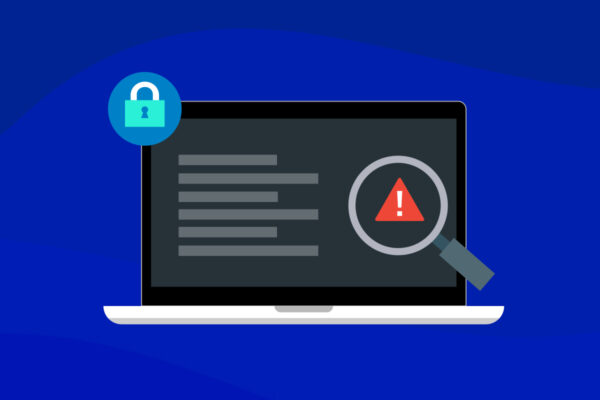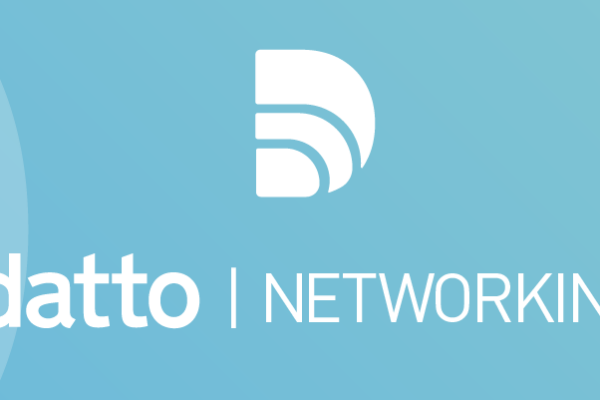What Is a Secure Web Gateway (SWG)?
The internet is the foundation of modern communication, and it would be impossible to carry out business operations without it. However, despite its innumerable benefits, the internet can also prove harmful to organizations or individuals from a security and privacy perspective.
Malicious actors, by means of phishing, malware or ransomware, for example, constantly seek to exploit vulnerabilities across connected networks, posing several risks to sensitive data.
That’s where the concept of a secure web gateway (SWG) comes into play. It serves as a gatekeeper, protecting users from various cyberthreats channeled through the internet. In this blog, we’ll explore what a SWG is and how it helps strengthen the security of both organizations and individuals in this interconnected world.
If you’re looking to enhance your hybrid or remote working security to avoid any kind of internet-borne cyberthreat, check out Datto Secure Edge today and enjoy multilayered protection anywhere, anytime.
What is a secure web gateway (SWG)?
A secure web gateway (SWG) is a cybersecurity solution designed to protect users from cyberthreats on the internet. It safeguards against malicious content, phishing attempts, unauthorized access, malicious URLs, browser exploits and botnets, ensuring a secure online environment for organizations and individuals.
SWGs filter internet traffic, enforce security policies and provide visibility into user activities. This proactive defense mechanism is crucial in today’s interconnected world, preventing bad actors from infiltrating networks and preserving the integrity of sensitive data. They ensure the safety of devices and an organization’s internal network while helping it stay compliant by regulating each user’s internet access.
What is the purpose of a secure web gateway?
The modern workforce’s daily use of digital assets and the shift to remote and hybrid work models necessitates a SWG to safeguard organizations. IT professionals should prioritize SWGs as they mitigate the evolution and rise in the number of cyberthreats, ensuring robust organizational and data security.
IT professionals need to prioritize the implementation of an SWG, especially when catering to remote and hybrid workers. By doing so, they empower the organization to avoid financial losses, maintain regulatory compliance and improve overall security posture. Without a robust SWG in place, organizations are vulnerable to cyberattacks that could compromise sensitive data, disrupt operations and tarnish reputations.
What is the difference between a secure web gateway and similar security solutions?
SWGs can be — and are often — confused with other web and application security solutions. Let’s distinguish between SWGs and these key counterparts.
SWG vs. firewall
SWGs and firewalls serve distinct but complementary roles. While firewalls traditionally focus on network security by monitoring and controlling incoming and outgoing traffic, SWGs specialize in filtering web content, addressing cyberthreats and enforcing policies for safe internet usage. SWGs provide granular control over user activities on the web, ensuring a more comprehensive approach to security compared to the broader scope of firewalls.
SWG vs. cloud access security brokers (CASBs)
Comparing SWGs with CASBs reveals their unique strengths. SWGs concentrate on securing web traffic, filtering content and preventing threats from malicious websites. CASBs excel in securing data as the information moves between devices and cloud applications. While SWGs emphasize web content filtering, CASBs extend their reach to data security in the cloud, ensuring a comprehensive defense strategy.
SWG vs. proxy
SWGs and proxies share similarities but diverge in their focus. Proxies act as intermediaries between users and the internet, forwarding requests and responses. SWGs, however, extend beyond this function by not only routing traffic but also inspecting it for malicious content, enforcing security policies and providing visibility into user activities. SWGs offer a more comprehensive security approach, making them indispensable for organizations seeking robust protection against web-based threats.
How does a secure web gateway work?
SWGs operate as a proactive cybersecurity solution, employing a multilayered approach to ensure comprehensive protection. Here are the detailed steps outlining how a SWG works:
- Traffic inspection: Incoming and outgoing web traffic is thoroughly inspected in real-time. This involves scrutinizing URLs, file downloads and other web elements to identify potential security threats.
- URL filtering: SWGs utilize URL filtering mechanisms to categorize and control access to websites. A predefined database is referenced to evaluate the reputation of each URL, allowing the SWG to permit or block access based on security policies.
- Malware detection: Advanced malware detection techniques, including signature-based and behavior-based analysis, are employed to identify and block malicious code. This proactive approach prevents the infiltration of malware into the network.
- Content filtering: SWGs implement content filtering policies to regulate the type of content accessed by users. This includes blocking inappropriate or non-compliant content based on predefined rules set by administrators.
- SSL inspection: Encrypted web traffic is decrypted and inspected for potential threats. SWGs employ SSL/TLS decryption to ensure that malicious activities or content hidden within encrypted connections are identified and neutralized.
- User authentication and access control: User authentication mechanisms, such as single sign-on (SSO) or multifactor authentication, are integrated to verify user identities. Access control policies are then enforced based on user roles and permissions.
- Logging and reporting: SWGs maintain detailed logs of web activities, providing administrators with visibility into user behavior. Comprehensive reporting tools enable the analysis of trends, potential security incidents and policy effectiveness.
- Threat intelligence integration: SWGs integrate with threat intelligence feeds to stay updated on emerging cyberthreats. This ensures a proactive defense by blocking access to websites or content associated with known threats.
What are secure web gateway features to look for?
Let’s delve into key features that should top your checklist when discerning what SWG solutions make the best sense for your needs.
URL filtering
URL Filtering is the first line of defense against malicious websites and inappropriate content. A robust SWG should provide granular control over web access, allowing you to enforce policies based on categories, specific URLs and user groups.
Anti-malware and antivirus protection
Protection against malware and viruses is non-negotiable. An effective SWG should employ advanced threat detection mechanisms, including signature-based and behavior-based analysis, to identify and neutralize threats before they infiltrate your network.
Application control
In the age of cloud-based applications, managing and controlling application usage is crucial. Look for an SWG that allows you to define policies for application access, ensuring that only authorized applications are used within your network.
Data loss prevention (DLP)
Preventing the leakage of sensitive data is a top priority. A robust SWG should include data loss prevention measures, allowing you to define and enforce policies to safeguard critical information.
HTTPS inspection
As more websites encrypt their traffic using HTTPS, it’s essential for an SWG to inspect encrypted traffic for potential threats. Look for a solution that can perform HTTPS inspection without compromising performance.
Policy enforcement
A flexible and effective policy enforcement mechanism is the backbone of any SWG. Whether it’s enforcing acceptable use policies or ensuring compliance with regulatory requirements, your SWG should provide granular control over user behavior.
So, when you’re evaluating a SWG solution, it’s crucial to consider these features to fortify your organization’s defenses against a world of cyberthreats.
How can a secure web gateway benefit your business?
Embracing a SWG for your business goes beyond mere cybersecurity; it’s a strategic move with several tangible benefits. Below are some advantages of implementing an SWG.
- Web access restriction: By enforcing granular web access policies, an SWG allows you to regulate employee internet usage, mitigating the risk of productivity drains and potential security threats. It empowers you to tailor access permissions, ensuring employees focus on work-related content while steering clear of malicious or inappropriate websites.
- Remote work security: In the age of remote work, an SWG acts as a stalwart guardian for your dispersed workforce. It secures remote access, providing a seamless and secure connection to your organization’s resources. This not only safeguards sensitive data but also ensures that employees working from various locations can do so without compromising the overall security posture.
- Compliance enforcement: Navigating the complex landscape of regulatory compliance becomes more manageable with an SWG. It assists in enforcing industry-specific regulations and internal policies, reducing the risk of legal repercussions and financial penalties. This proactive approach fosters a compliant culture within the organization, safeguarding its reputation and fostering trust among clients and stakeholders.
- Malware prevention: An SWG serves as a robust defense against malware threats. Through advanced detection mechanisms and real-time analysis, it identifies and neutralizes potential threats before they infiltrate your network. This not only prevents disruptions to business operations but also shields your organization from the financial and reputational repercussions associated with successful malware attacks.
Now that we’ve covered everything you need to know about SWG, the next step is deploying the perfect solution that covers all your internet security needs — and we know just the product.
Implement SWG and SASE with Datto Secure Edge
Let’s explore how you can seamlessly implement SWG and Secure Access Service Edge (SASE) with Datto Secure Edge — our cloud-managed access solution purpose-built for IT professionals like you.
With features designed to meet the evolving demands of the digital landscape, Datto Secure Edge simplifies your role in ensuring a secure and efficient IT environment.
- Secure connections to SaaS applications: Datto Secure Edge ensures that your users can connect securely to SaaS applications, fostering productivity while maintaining a robust security posture.
- End-to-end security for remote connections: As remote work becomes integral, Datto Secure Edge offers end-to-end security for remote connections. Safeguarding data and communications, it provides a secure gateway for your dispersed workforce.
- Dedicated cloud firewall: Enjoy the peace of mind that comes with a dedicated cloud firewall. Datto Secure Edge’s firewall features provide an additional layer of defense against cyberthreats, securing your network from potential breaches.
- Streamlined deployment: Time is of the essence, and Datto Secure Edge recognizes that. Its streamlined deployment ensures that you can enhance your network security without the hassle of prolonged implementation, allowing you to focus on what matters most.
By implementing Datto Secure Edge, you’re not just fortifying your organization against cyberthreats — you’re also ensuring a seamless, secure and efficient IT environment. As an IT professional, you now possess the knowledge and the tools to navigate the complexities of the digital realm with confidence.
Schedule a demo of Datto Secure Edge today and thwart internet-based cyberthreats effortlessly!


